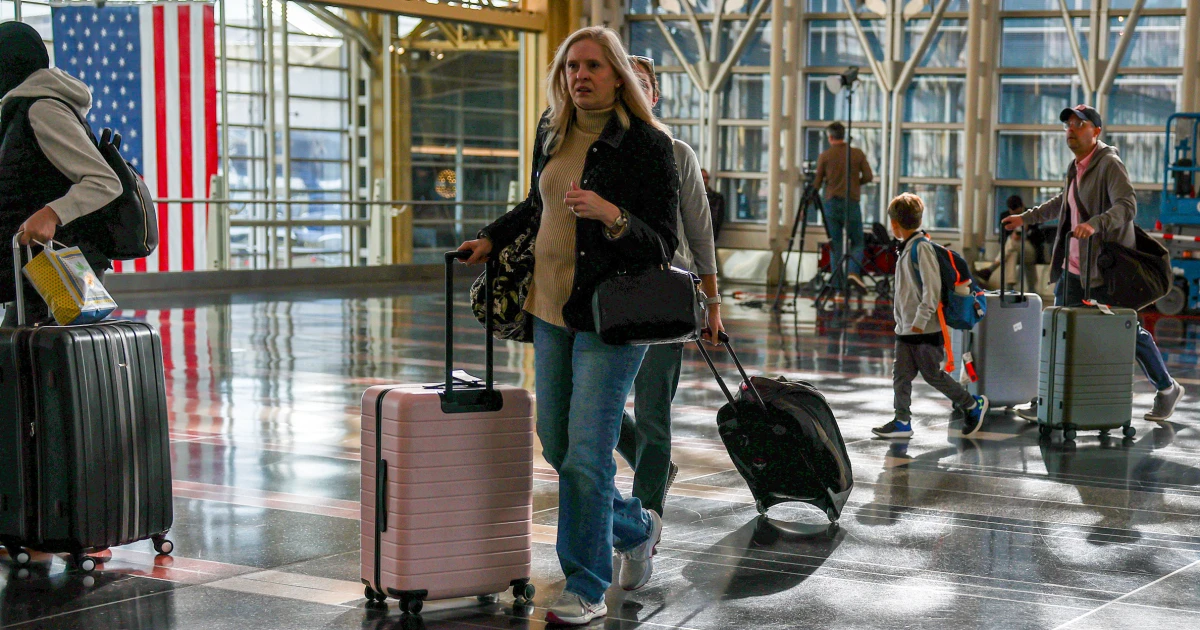Copyright NBC News

Flying anywhere for the Thanksgiving holiday is likely to be tortuous for legions of travelers — even if the government shutdown ends today, Transportation Secretary Sean Duffy warned on Friday. Hundreds of flights during one of the busiest travel weeks of the year could be affected by staffing shortages of air traffic controllers. The shortages have been exacerbated by the shutdown, prompting the Federal Aviation Administration to implement unprecedented flight reductions. And those staff shortages — at least for now — appear to be set in stone for Thanksgiving, Duffy said. "So if the government opens on day one, will I see an immediate response from controllers? No, the union is telling me it’s going to take time to get them all back in," Duffy said in an interview with CNN on Friday when asked if the flight reductions would spill into the holiday. "I don’t wish this was the circumstance in which I was dealing with," he said. "So I imagine, as we see the data change and more controllers come to work, we are as quickly as possible going to take these restrictions away." The FAA announced it would begin cutting the number of flights in the “high traffic” parts of the country while the government shutdown grinds on and local airports contend with the staffing shortages. The flight reductions went into effect Friday, on Day 38 of the federal government shutdown, now the longest such shutdown in U.S. history. The FAA is requiring 4% of flights in and out of 40 of the nation's busiest airport to be cut and that percentage will gradually increase to 10% by next Friday. Duffy, in an interview Friday with Fox News, also raised the possibility of reducing up to 20% of flights at some airports. "I don't want to see that," he said. The airports facing reductions include Chicago O’Hare, Hartsfield-Jackson Atlanta International Airport, Miami International Airport and all three New York-area airports. FAA Administrator Bryan Bedford said Thursday the move to reduce the number of flights was sparked by “fatigue” plaguing air traffic controllers, who have been working without pay since the start of the shutdown. Bedford said airports across the country were already contending with staffing shortages before most government operations ground to a halt. Air traffic controllers are considered essential workers and are not allowed to walk off their jobs. But they’re also exhausted, said Nick Daniels, president of the National Air Traffic Controllers Association. “It’s unprecedented to go through two full paychecks, 37 days, and receive no compensation,” he said Thursday. “So it’s not a matter of calling in sick. They’re calling their employer and saying, ‘I don’t have gas. I have not received pay in 37 days. What do you want me to do?'” Patrick Penfield, a Syracuse University professor of supply chain practice, said cutting flights could also make it harder for retailers to replenish their stocks of "hot" items for the holiday season. "Forty percent to 50% of all air freight is shipped in the belly of passenger planes," Penfield said. "If you eliminate 10% of airline capacity, air freight prices will rise, and we could see delays in getting materials via air."



